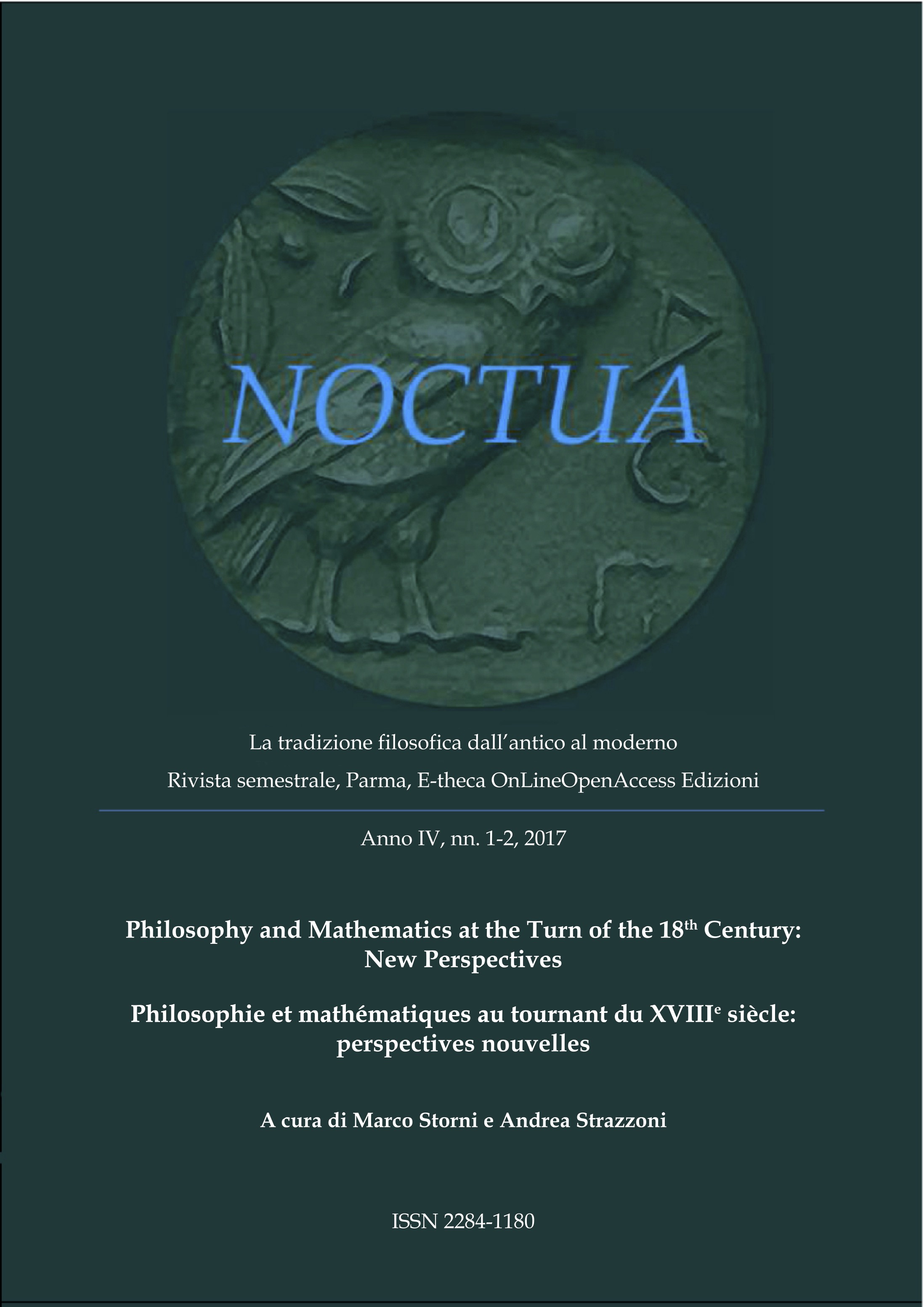Comment sortir du labyrinthe. Condillac critique de Spinoza, entre mos geometricus et Langue des calculs
DOI:
https://doi.org/10.14640/NoctuaIV6Keywords:
calculation, Étienne Bonnot de Condillac, logic, Spinoza, systemAbstract
The present article proposes to study Condillac’s analysis of Spinoza’s Ethics, against the background of the more general criticism that the French abbot makes of the seventeenth-century logique de système. From the Essai sur l’origine des connaissances humaines to the Traité des systèmes to the later texts (Grammaire, Logique, Langue des calculs), Condillac’s theory and critique of systems are crossed by two components: on the one hand, the search for the sensory origin of ideas, that Condillac radicalizes in his Traité des sensations into a theory of knowledge as a ‘transformed sensation’. On the other hand, an operative logic of signs, which from the Essai to the works subsequent to the Traité des sensations translates sensibility into a knowledge, or a ‘well-made language’, whose logic is calculation. My objective is to clarify how the new ‘systematic spirit’, repeatedly invoked by the abbot, departs from the ‘bad metaphysics’ that he claims to liquidate. The comparison with the Spinozist system will be illuminating: in his treatise on the metaphysical systems of the seventeenth century Condillac proposes a critical analysis of the ‘geometrical spirit’; in his latest work, La langue des calculs, he proposes a new logic to which he assigns the task of bringing together the abstract and the concrete, beyond the ruins of classical metaphysics. The ‘systematic spirit’ and ‘spirit of system’ will be revealed, in spite of Condillac’s efforts, as being much closer to what it appears at first sight.
Downloads
Published
License
Noctua pubblica contributi Diamond Open Access secondo i termini della licenza CC BY / Noctua publishes Diamond Open Access contributions under the terms of the CC BY license.






